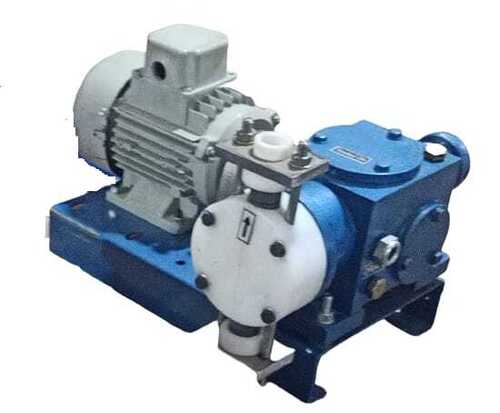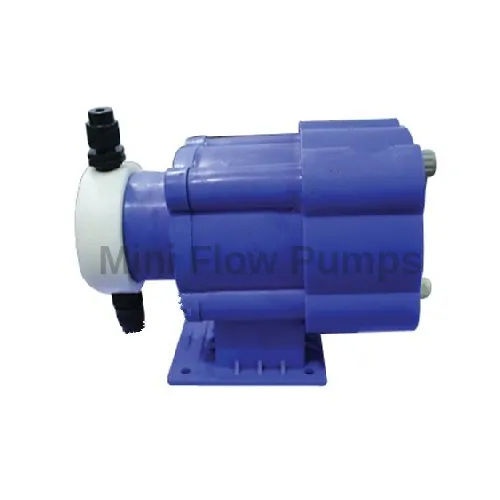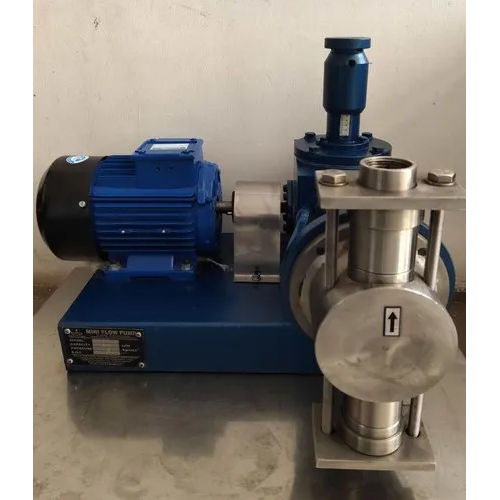Call us: 07971549709
Diaphragm Dosing Pump
35000 INR/Piece
Product Details:
- Usage Industrial
- Product Type Diaphragm Dosing Pump
- Color Blue
- Size Standard
- Material Steel
- Power Electric Watt (w)
- Application Submersible
- Click to View more
X
Diaphragm Dosing Pump Price And Quantity
- 1 Piece
- 35000 INR/Piece
Diaphragm Dosing Pump Product Specifications
- Submersible
- Industrial
- Diaphragm Dosing Pump
- Electric Watt (w)
- Blue
- Standard
- Steel
Diaphragm Dosing Pump Trade Information
- 100 Piece Per Month
- 10 Days
Product Description
A diaphragm dosing pump is a type of positive displacement pump that is commonly used for the precise dosing of chemicals or other fluids in a variety of industries, including water treatment, chemical processing, and agriculture.
Diaphragm dosing pumps use a flexible diaphragm to pump the fluid. The diaphragm is typically made of a synthetic material such as Te flon or EPDM and is actuated by a mechanical or hydraulic mechanism. As the mechanism moves, the diaphragm flexes, creating a suction that draws the fluid into the pump chamber. As the diaphragm returns to its original position, the fluid is forced out of the pump chamber and into the discharge line.
One of the main advantages of diaphragm dosing pumps is their ability to handle a wide range of fluids, including corrosive or viscous liquids. They are also designed for accurate and precise dosing, with the ability to deliver a consistent flow rate over a wide range of pressures and viscosities.
Diaphragm dosing pumps come in a variety of configurations, including manual, electric, and pneumatic models. They can be used for a wide range of applications, including chemical dosing, pH adjustment, and disinfection.
Overall, diaphragm dosing pumps are a reliable and effective solution for precise dosing of chemicals and other fluids in a variety of industries. They are relatively low-maintenance and can be easily integrated into existing process systems.
Tell us about your requirement

Price:
Quantity
Select Unit
- 50
- 100
- 200
- 250
- 500
- 1000+
Additional detail
Mobile number
Email

 English
English Spanish
Spanish French
French German
German Italian
Italian Chinese (Simplified)
Chinese (Simplified) Japanese
Japanese Korean
Korean Arabic
Arabic Portuguese
Portuguese






